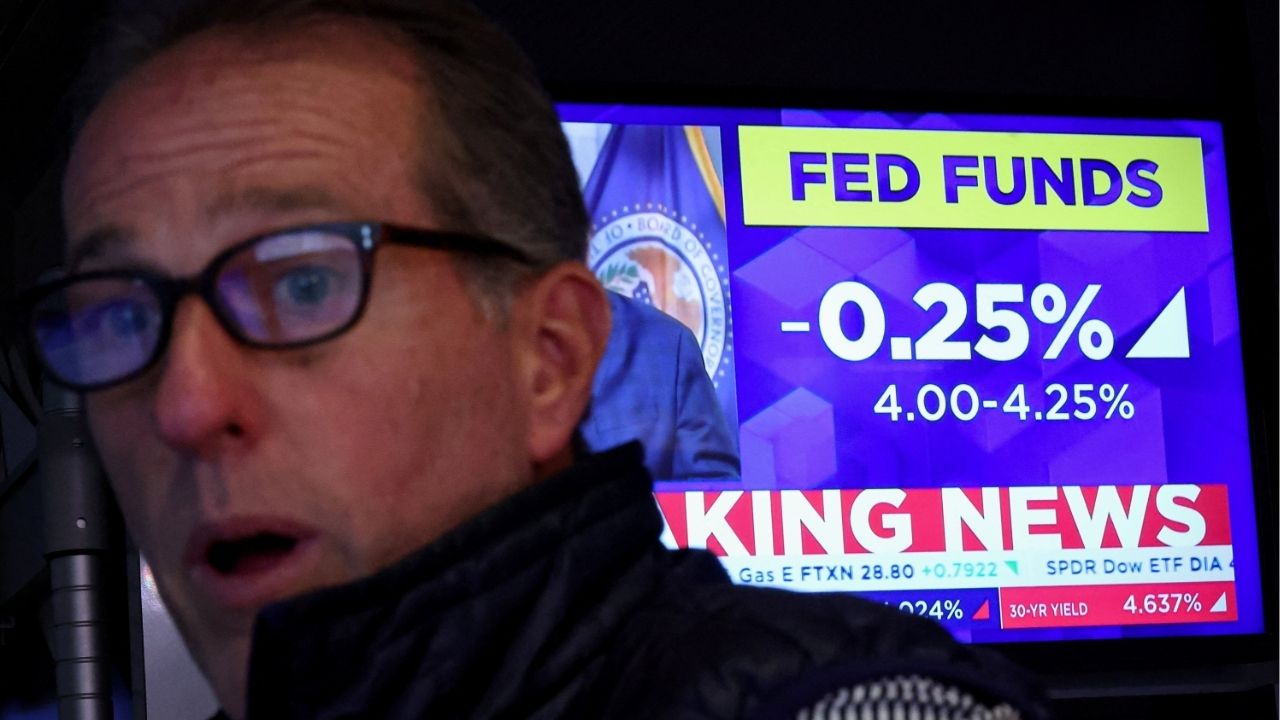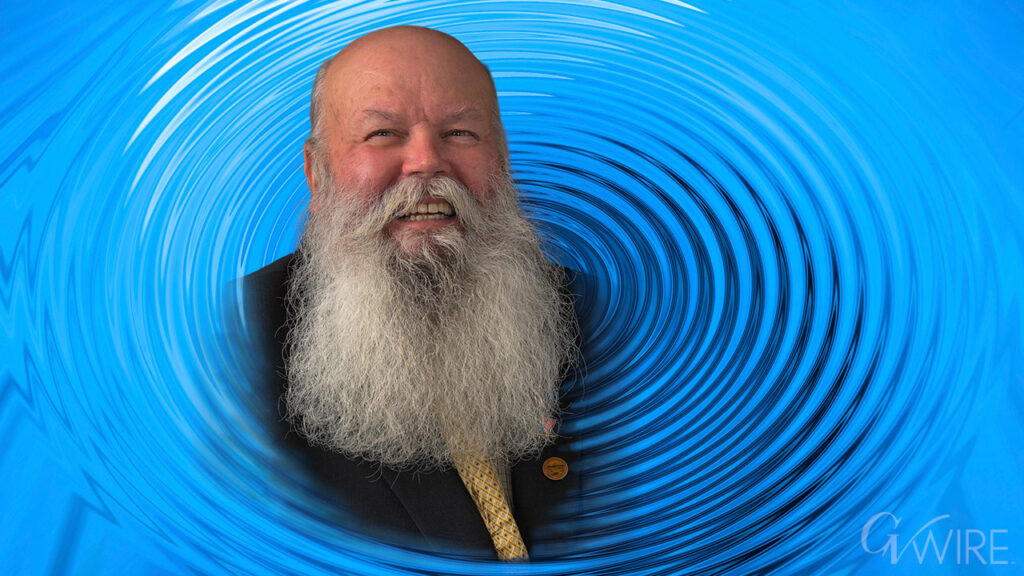A specialist trader reacts, as a screen displays the Fed rate announcement on the floor of the New York Stock Exchange (NYSE) in New York City, U.S., September 17, 2025. (Reuters/Brendan McDermid)

- The Federal Reserve cut interest rates by 25 basis points, signaling the start of a gradual monetary easing cycle through 2025.
- Wall Street ended mixed, with the Dow rising while the S&P 500 and Nasdaq dipped; global stocks briefly hit a record high.
- Gold prices hit a fresh record before retreating, Treasury yields rose, and the dollar strengthened following Chair Jerome Powell’s remarks.
Share
|
Getting your Trinity Audio player ready...
|
NEW YORK — World stocks hit a record high in choppy trading with equities Wall Street ending mixed on Wednesday after the Federal Reserve delivered a widely expected interest rate cut and signaled the start of a monetary policy easing cycle.
The Fed cut rates by a quarter of a percentage point and indicated it will steadily lower borrowing costs for the rest of this year. Only new Governor Stephen Miran, who joined the Fed on Tuesday and is on leave as head of the White House’s Council of Economic Advisers, dissented in favor of a half-percentage-point cut.
The S&P 500 and Nasdaq finished slightly lower while the Dow rose. The Dow Industrial Average rose 0.57% to 46,018.32, the S&P 500 fell 0.10% to 6,600.35 and the Nasdaq Composite fell 0.32% to 22,261.33.
MSCI’s gauge of stocks across the globe was last down 0.10% to 975.84, after rising to a record high of 979.61. The pan-European STOXX 600 index had ended down 0.03%.
“The market’s reaction so far has been to sell on this news, which isn’t that surprising; what does surprise me is that the markets were as bullish going into this as they were,” said Mark Malek, chief investment officer at SiebertNXT in New York. “I’m expecting more of a negative knee-jerk reaction, because there was a lot of excitement and a bit too much exuberance came in too soon.”
After the cut, Treasury yields initially erased gains and turned lower on the session before reversing course as Powell spoke.
Benchmark US 10-Year Note Yield Rose
The benchmark U.S. 10-year note yield rose 4.6 basis points to 4.072%. The 2-year note yield, which typically moves in step with interest rate expectations for the Fed, rose 3.9 basis points to 3.51%. The 30-year bond yield rose 2.4 basis points to 4.669%.
“I would say this is a mildly bullish report, as it shows that the Fed no longer has the hawkish bias it had earlier in the year. In the commentary, unemployment seems as much of a worry now as inflation,” said Chris Grisanti, chief market strategist at MAI Capital Management in New York.
“The Fed lowered rates by 25 basis points – no surprise there – but the bigger news here is the huge dispersion in the ‘dot plot’ estimates as to where rates will be a year and two years from now,” Grisanti added.
Fed Chair Jerome Powell said in his subsequent press briefing that some of the more dire inflationary scenarios facing the economy have faded, adding that tariffs may be pushing up prices but it increasingly looks like it will be “a one-time price increase.”
The U.S. dollar strengthened against major peers after the Fed’s announcement and as Powell spoke to the press. The dollar strengthened 0.27% to 146.87 against the Japanese yen and was up 0.36% to 0.788 against the Swiss franc.
The euro fell 0.38% to $1.1822 against the dollar. The dollar index rose 0.35% to 96.96.
Gold prices hit a fresh record high after the Fed’s decision. Spot gold was last down 0.82% to $3,659.10 an ounce after reaching a new peak of $3,707.40. U.S. gold futures for December delivery settled 0.2% lower at $3,717.80.
Oil prices eased after data showing an increase in U.S. diesel stockpiles stoked worries about demand. Brent crude futures settled down 0.76% to $68.22 a barrel while U.S. West Texas Intermediate crude futures lost 0.73% to settle at $64.05.
—
(Reporting by Chibuike Oguh in New York and Dhara Ranasinghe in London; Additional reporting by Laura Matthews and Suzanne McGee in New York; Editing by Richard Chang and Lisa Shumaker)
RELATED TOPICS:
Categories

New Rules for 401(k) ‘Catch-Up’ Contributions in 2026


















